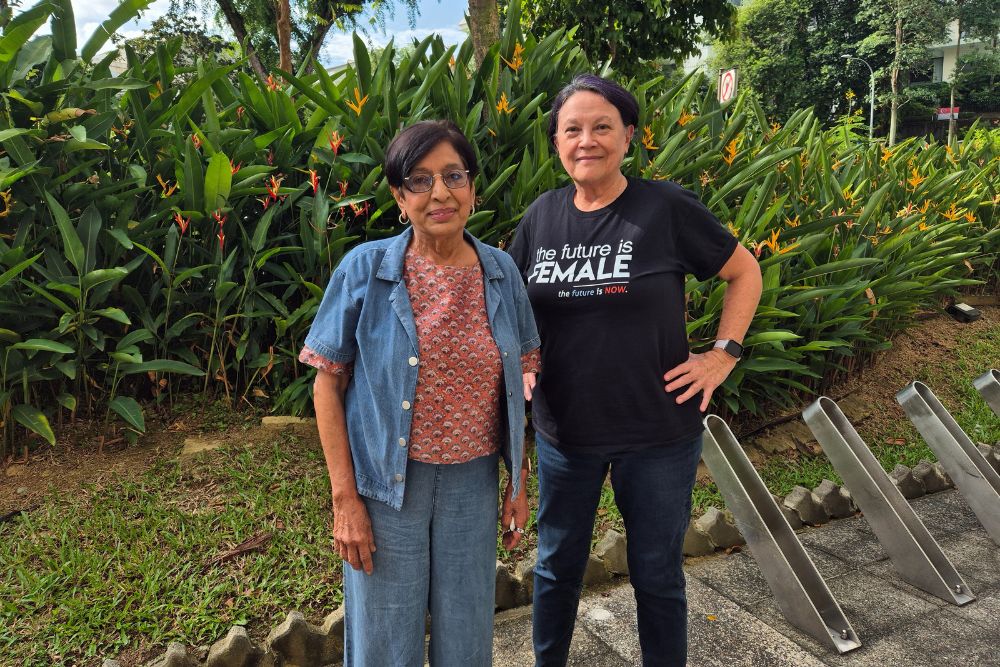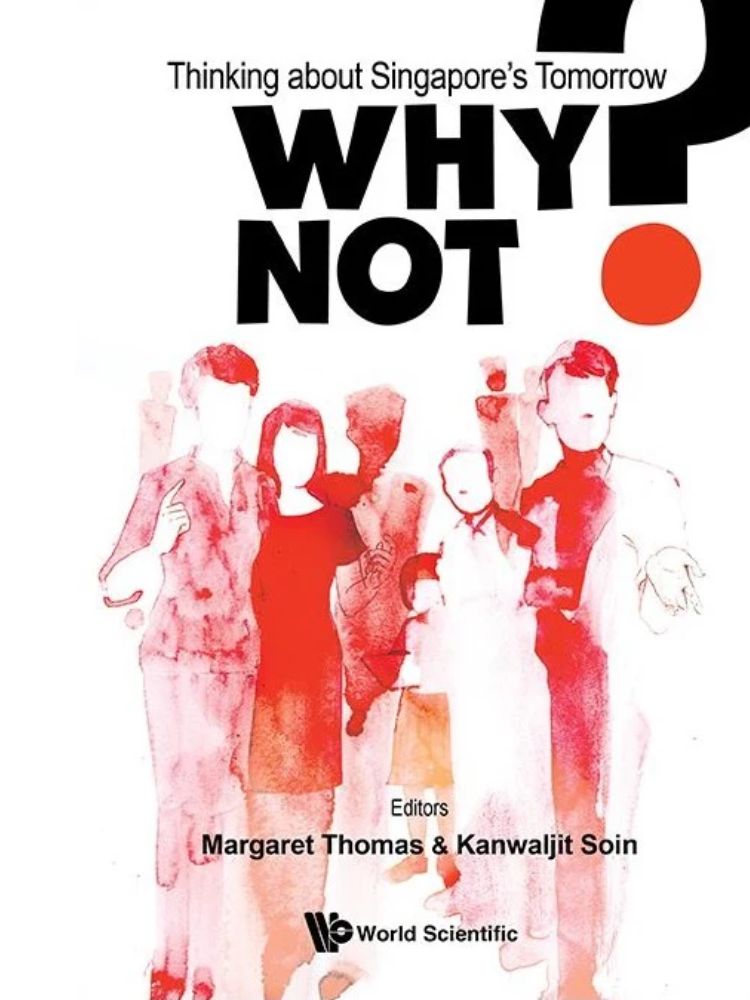
It’s been four months since former journalist Margaret Thomas and her co-editor, former orthopaedic surgeon Kanwaljit Soin, launched Why Not? Thinking About Singapore’s Tomorrow, a book compiling the diverse perspectives of 45 local writers on topics like gender equality, social classes, multiculturalism and ageing.
But the ideas discussed within the 572-page tome are still fresh in their mind – a sentiment, they hope, that carries through to the people who’ve picked up the book (or at least, heard about it), regardless of whether they’re policymaker or proletariat.
After all, many of the issues are personal to the pair. Margaret and Kanwaljit have long been fierce advocates for women as founding members of the Association of Women for Action and Research (AWARE).
They’re also well into their golden years – and proud of it – at age 73 and 82 respectively, with both women making regular speaking or panel appearances at events like eldercare conference Ageing Asia and the Lions Befrienders Conference 2024.
Why Not? Thinking About Singapore’s Tomorrow is available now, with a condensed comic book version in the works for the end of the year. Without giving everything away, read on three key takeaways from the book, as outlined by its co-editors over a cup of coffee.
Advertisement
1. Think outside the box
The reason why the book is titled Why Not? is because that's the question we want to put in people's heads. Why not think outside the box? Why not get rid of something and start over, instead of trying to correct course from a wrong assumption?
Says Kanwaljit,
Indeed, one of the throughlines that bears repeated mentions across the book’s 36 chapters is the idea of identifying sacred cows – referring to things or beliefs that are considered immune from question or criticism – and snuffing them out.
Possibly the pair’s biggest bugbear (as laid out in the ultimate chapter of the book) is the concept of a retirement age.
It just doesn’t make sense. Ageing is so heterogenous. You have one senior who can't climb a flight of stairs and another who can climb Mount Everest. Your employability shouldn't be pegged to your chronological age, but your biological age,
Kanwaljit reflects.
We're always focused on making sure that no one abuses the system. I get that policymakers need to answer to taxpayers, but this mindset prevents them from being experimental and trying something new.
Margaret, on the other hand, points to a refrain that's often heard when it comes to policymaking in general:
2. Policy and social norms can guide one another
Setting policies that are truly “open-minded, flexible and forward-looking”, says Margaret, requires policymakers to be daring enough to lead the way, rather than looking backward to prevailing social norms at the time.
We’re often told that policy reflects social norms. But we see from history, the policies that the government sets sometimes precede norms. They lead the way – the question is which should follow which, and these are questions that we can answer with an open and robust conversation,
she adds.
Where it comes to working toward an “age-integrated longevity society” in Singapore, the pair suggest novel policies that encourage intermingling between the younger and older generations.
These include initiatives first piloted in other ageing societies, such as pairing university students with seniors who have spare rooms to let or placing active ageing centres and student care centres within the same facility.
Recognising Singapore’s declining birthrate, they also suggested a community-led approach to senior housing that encourage them to care for one another.
3. Have open conversations

Though Kanwaljit and Margaret largely agree about most of the topics discussed in Why Not? Thinking About Singapore’s Tomorrow, their viewpoints diverge when it comes to euthanasia.
Margaret is “all for it”, provided there are safeguards that ensure people are making an informed decision, of their own volition, while still lucid.
It's about having the freedom to decide for ourselves, 'This is it',
she explains.
Meanwhile, Kanwaljit is opposed to the idea as a doctor and firsthand witness to “the speed at which medical technology is progressing every day”.
Something that's considered terminal today could become curable tomorrow. It's such a waste to cut it off right then and there,
she says.
It’s a topic that both of them are happy to disagree about, seeing as how they believe that society in general can only move forward once its people are willing to “vigorously debate” issues no matter how touchy they may seem.
And that, essentially, is the thrust of their book.
What we're doing is getting ideas out into the marketplace and starting conversations where we think they need to be started.
Says Margaret,
Why Not? Thinking About Singapore’s Tomorrow is available at Kinokuniya and Epigram Books.







